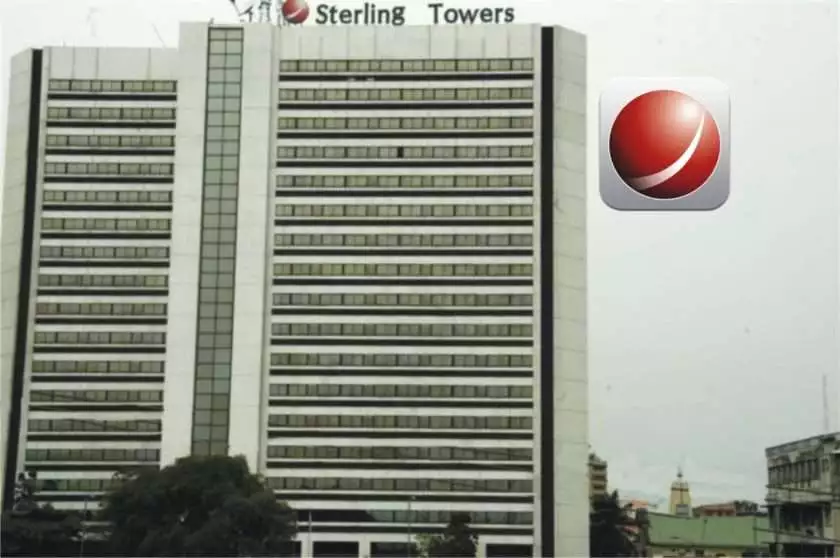By Fola James
Amid worries of sliding profit, the management of Sterling Bank Plc, last week disclosed that the Deposit Money Bank, DMB is experiencing cash squeeze due to the Cash Reserve Ratio, CRR imposed by the Central Bank of Nigeria, CBN.
Recall that Fitch Ratings, a renowned global ratings agency, few days ago disclosed that the Cash Reserve policy has been having crippling effects on the operations of some commercial banks in the country.
“The Central Bank of Nigeria has been highly interventionist. Where peers like South Africa and Kenya followed the global trend of giving banks more room to lend, Nigeria hasn’t budged. Instead, it stuck with a cash reserve ratio that compels lenders to park 27.5% of their deposits with the central bank,’ Fitch said in its forecast.
Sterling Bank is not finding the situation easy at all, if the report it made available to the NSE, is anything to go by.
What is the problem?
“The liquidity problem, could affect cash on demand by customers thus compounding the reputation of the new generation bank,” according to Olamide Joseph, who insists that “the bank must do more to dispel rumours of vulnerability.”
According to the figures the bank released to the NSE, cumulative customers’ Deposit currently stands at N915.3billion while loans to customers is N615 billion; CRR N215.5 billion and CRR (debit) N93 billion.
“Looking at those figures critically, you can do the calculation to find out whether there’s already a problem or not,” Joseph said.

CSL, a popular stock broking firm in Lagos recently warned that the 2020 financial year would be one of the worst for the Abubakar Suleiman bank in terms of profit returns.
The prediction came on the crest of the bank’s struggles to impress global rating firms, the flip-flop of its share price at the Nigerian stock Exchange, NSE amidst ravaging COVID 19 which has badly hit the Nigerian financial sector and tumbled banks’ earnings this year, sector analysts say.
Sterling Bank’s share price was down to N120 per share at the close of trading on Friday, far below other tier-two banks in the country.
Fidelity Bank Plc share, for instance, was traded for N173 while FCMB share closed at N192 at the end of Monday trading at the NSE.
Crying out that that its operations have been highly hampered by CRR close watchers of the tier two bank say, has further exposed its vulnerability.
In its 2020 half-year interim results published on the website of the NSE, Sterling Bank said by withholding N215.5 billion in CRR from its coffers it will now struggle to meet customers’ cash demands.
What the CBN has withheld “represent mandatory reserve deposits and are not available for use in the bank’s day-to-day operations,” the management said.
The apex bank on January 23 this year increased its cash reserve requirement, CRR for banks to 27.5 per cent from 22.5 per cent at its new-year monetary policy committee meeting.
CRR is normally used by CBN to control inflation, sometimes applied to checkmate excess cash from being released into circulation.
Sterling Bank Plc is among DMBs that have been struggling to meet the CRR since the beginning of the year, and the CBN has followed up by coming down hard on erring banks, deducting directly from their cash reserves domiciled with the apex Regulator.
This year alone, the CBN has deducted over N93 billion from Sterling bank as penalty for violating the CRR.
“When you add N93 billion to N215 billion, the bank has been limited by over N300 billion in cash that it can make available to its customers. You need no soothsayer to tell you what will happen next: potential and existing customers will only interpret this to mean that the bank does not have enough cash back up and that something is wrong with the bank.
“How do you prove that you are strong if you cannot make cash available to customers on demand; and how can you grow profit when you cannot grant loan facilities to customers because of liquidity issues caused by cash call from CBN? In all of these, customers can begin to smell a rat.
“It’s really a cul-de-sac situation for Sterling Bank,” James Edwards, a business analyst told the magazine.
CSL, has meanwhile, predicted that the 2020 financial year may be worst for the bank as profit could be down as much as 15 per cent.
The lender struggled to earn N10.2 billion pre-tax profit, PBT in the 2019 financial year.
The firm stated that return on equity and assets, ROAE could plunge to at least seven per cent.
CSL said “We Project Pre-tax Profit of N9.0bn (down 15% y/y) and we estimate ROAE of 6.9% in 2020e (FY 2019; 9.8%).”
Also “We do not expect asset quality issues to crystallise in the short term, as we expect the bulk of the loans in the Oil and gas upstream/midstream (c.27% of gross loan) to be restructured,” the firm said.
What this means, for instance, analysts insist, is that huge loans granted to the oil and gas sector are not expected be recovered because of the plunge in prices of crude oil in the international market.
Sterling recorded one of the highest exposures to the oil sector among DMBs in its category.
“This is a bad news for customers, shareholders and potential investors,” Edwards further stated.
CSL stated that the fact that the Suleiman-led bank only managed to pay a meager N864 million dividends to shareholders in 2019, after failing to do so in the 2018, should be of serious concerns to the management and shareholders.
But looking closely at the bank, analysts say, is the bottomline; the serious governance issues affecting the lender
Dapo Ibiyemi, a financial analyst in Lagos said “the bank’s 2019 financial report has opened up many posers on the prudential skills of those running the bank.”
He said the report indicates that the bank recorded a higher running cost in the year under review than those in its category.
“For every N10 made during the period” he said “Sterling Bank spent N8, an indication that 80 per cent of its earnings went into expenses, raising serious doubts about the management’s cost efficiency.”
Also, the bank spent N70.2 billion on Operating cost, according to the 2019 Full year report presented to the NSE.
The Report show that repairs and maintenance, for example, cost the bank N7.3 billion in 2019, when N7 billion has already been incurred in 2018.
Also admin and Office expenses which incurred N5.4 billion in the 2018 FY got another N4 billion in 2019.
Also admin and Office expenses which incurred N5.4 billion in the 2018 FY got another N4 billion in 2019.
Ibiyemi said ” You cannot be living large when your rooftop is leaking.”
Meanwhile, all efforts to get the bank’s response to the issue failed, as calls made to Adeola Adejokun, its spokesman, failed while text message sent to his telephone line was not replied.





